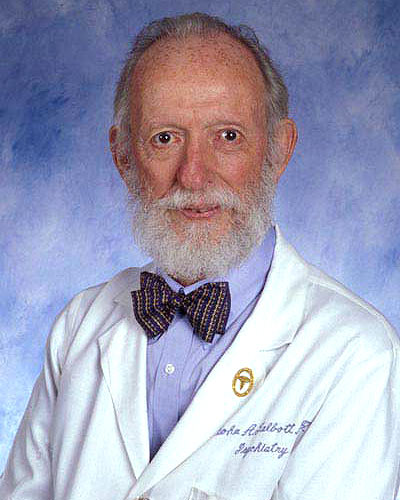September 23, 2021 | Deborah Kotz
After Serving as Vice Chair of the IRB, Dr. Kelly Will Lead Safety Review of All Studies Involving Human Participants for the Maryland Department of Heatlh (MDH)
Deanna Kelly, PharmD, Professor of Psychiatry at the University of Maryland School of Medicine (UMSOM), has been appointed to lead the prestigious committee of experts who review and approve all proposed research projects involving human participants for the Maryland Department of Health (MDH). She will chair the MDH Institutional Review Board (IRB) for the next four years, a position she started in July.
 Dr. Kelly is currently Director and Chief of the Treatment Research Program at the Maryland Psychiatric Research Center (MPRC). She previously served as Vice Chair of the Department of Health’s IRB for the past four years.
Dr. Kelly is currently Director and Chief of the Treatment Research Program at the Maryland Psychiatric Research Center (MPRC). She previously served as Vice Chair of the Department of Health’s IRB for the past four years.
“I am honored and thrilled to take the helm of this important safety board,” Dr. Kelly said. “The work we do is vital for ensuring the protection of the rights and welfare of those who are recruited to participate in research studies.”
The MDH IRB reviews human subject research that is funded with federal, state, or other funds available from or through MDH, involves patients or clients of MDH, or data held or compiled by MDH. The board also reviews studies conducted by researchers who are employees of MDH or students in a residency program at MDH, if they are conducting the research as part of their employment or training.
The University of Maryland, Baltimore (UMB) has its own IRB that serves UMSOM and the other UMB graduate schools. Faculty usually submit their paperwork to one board at a time in order to get input from the first before submitting to the second. “We are in frequent communication with the IRB at UMB,” said Dr. Kelly.
Much of her current work involves revamping the processes in order to meet new federal rules that have streamlined the IRB processes. The 21st Century Cures Act, enacted four years ago, allows for institutions to rely on another unrelated institution’s IRB for review of human participants in a research study.
Research conducted at multiple sites may depend on a single IRB to oversee the review of the research. This can be done with what is known as a reliance agreement or IRB Authorization Agreement. It has helped reduce paperwork for large studies, according to Dr. Kelly, but also needs to be fully incorporated into the processes used by the MDH IRB.
Researchers also can also apply for an IRB research exemption for certain types of research including some of those that involve educational purposes. “A lot of studies are exempt or can be expedited so the review process takes just a few weeks,” Dr. Kelly said. “Scientists, however, should not assume they will be granted an exemption and need to submit an exemption request.”
She advised faculty to reach out with questions before submitting their IRB paperwork to make sure they fully understand the process and its complexities. Questions can be directed to: gay.hutchen@Maryland.gov.
In her work as a researcher and principal investigator at MPRC, Dr. Kelly has led and been involved in numerous clinical trials in schizophrenia and severe mental illness and has been active in psychopharmacology research for nearly three decades. She has published over 200 peer-reviewed articles, presented over 250 scientific posters, and has given over 175 invited lectures to discuss her research.
“Dr. Kelly is extremely qualified to lead the IRB for the State of Maryland,” said E. Albert Reece, MD, PhD, MBA, Executive Vice President for Medical Affairs, UM Baltimore, and the John Z. and Akiko K. Bowers Distinguished Professor and Dean, University of Maryland School of Medicine. "Her expertise as a researcher, and her previous work with the IRB for more than a decade, will bring exceptional value to this important research entity for the next four years.”
About the University of Maryland School of Medicine
Now in its third century, the University of Maryland School of Medicine was chartered in 1807 as the first public medical school in the United States. It continues today as one of the fastest growing, top-tier biomedical research enterprises in the world -- with 46 academic departments, centers, institutes, and programs, and a faculty of more than 3,000 physicians, scientists, and allied health professionals, including members of the National Academy of Medicine and the National Academy of Sciences, and a distinguished two-time winner of the Albert E. Lasker Award in Medical Research. With an operating budget of more than $1.2 billion, the School of Medicine works closely in partnership with the University of Maryland Medical Center and Medical System to provide research-intensive, academic and clinically based care for nearly 2 million patients each year. The School of Medicine has nearly $600 million in extramural funding, with most of its academic departments highly ranked among all medical schools in the nation in research funding. As one of the seven professional schools that make up the University of Maryland, Baltimore campus, the School of Medicine has a total population of nearly 9,000 faculty and staff, including 2,500 students, trainees, residents, and fellows. The combined School of Medicine and Medical System (“University of Maryland Medicine”) has an annual budget of over $6 billion and an economic impact of nearly $20 billion on the state and local community. The School of Medicine, which ranks as the 8th highest among public medical schools in research productivity (according to the Association of American Medical Colleges profile) is an innovator in translational medicine, with 606 active patents and 52 start-up companies. In the latest U.S. News & World Report ranking of the Best Medical Schools, published in 2021, the UM School of Medicine is ranked #9 among the 92 public medical schools in the U.S., and in the top 15 percent (#27) of all 192 public and private U.S. medical schools. The School of Medicine works locally, nationally, and globally, with research and treatment facilities in 36 countries around the world. Visit medschool.umaryland.edu
Contact
Deborah Kotz
University of Maryland Medicine
dkotz@som.umaryland.edu
(410) 706-4255
Related stories

Monday, July 07, 2025
Dr. Deanna L. Kelly Named Director of the Maryland Psychiatric Research Center
Mark T. Gladwin, MD, Dean of the University of Maryland School of Medicine announced today that Deanna L. Kelly, PharmD, BCPP, a Professor of Psychiatry at the University of Maryland School of Medicine, has been named Director of the Maryland Psychiatric Research Center (MPRC), Dr. Kelly is a internationally recognized clinician-scientist specializing in the advancement of treatments for psychotic disorders and schizophrenia, after serving as Interim Director for three years.

Tuesday, December 19, 2023
UM School of Medicine Review Highlights Rise in Psychiatric Disorders Linked to Increased Cannabis Use
The widespread use of cannabis (marijuana) and its increased potency are associated with a rise in cannabis-related psychiatric conditions, according to a new University of Maryland School of Medicine (UMSOM) review article that was recently published in the New England Journal of Medicine. It highlights the urgent need for doctors to screen for and treat patients who are experiencing symptoms of cannabis use disorder, which means they are experiencing significant problems from their use of the drug.

Friday, December 08, 2023
UM School of Medicine Celebrates the Life and Legacy of Former Psychiatry Chair, John A. Talbott, MD
It is with deep sorrow that we announce the news of the passing of internationally renowned psychiatrist John A. Talbott, MD, former Chair of Psychiatry and Professor Emeritus at the University of Maryland School of Medicine (UMSOM).

Friday, January 06, 2023
UM School of Medicine Scientists Create First Extensive Brain Cell Data Repository
Neuroscience researchers now have access to 50 million brain cells to better understand how the brain develops and functions or changes with disease or trauma. Last month, scientists at the University of Maryland School of Medicine’s (UMSOM) Institute for Genome Sciences (IGS) unveiled a “one-stop shop” for brain cell data called the Neuroscience Multi-Omic Archive (NeMO Archive). This archive is now available to neuroscience researchers to transform their understanding of the complex workings of the brain.

Tuesday, August 30, 2022
Effects of Drugs in Mice can Depend on the Sex of the Human Experimenter
University of Maryland School of Medicine researchers demonstrated that a stress response in the brain is essential for ketamine’s antidepressant response in mice suggesting new ways to improve antidepressant therapy for patients who do not respond to the treatment.

Thursday, May 14, 2020
Researchers Launch Study to Improve Prescribing of Clozapine for More Effective Management of Schizophrenia
Researchers at the University of Maryland School of Medicine and the Maryland Psychiatric Research Center are preparing to launch a new study to increase prescribing rates of the medication clozapine to treat schizophrenia. It will employ an innovative educational telementoring program called Project ECHO (Extension for Community Health Outcomes) that connects centralized experts to prescribers and clinicians throughout the state of Maryland.

Tuesday, October 31, 2017
UM SOM Professor of Psychiatry Recognized for Innovative and Promising Research in Schizophrenia
Deanna Kelly, PharmD, BCPP, Professor of Psychiatry at the University of Maryland School of Medicine (UM SOM), has been awarded the 2017 Maltz Prize for Innovative and Promising Schizophrenia Research from the Brain and Behavior Research Foundation. The Maltz award is considered one of the top awards in the field of psychiatric disorders.
Wednesday, June 07, 2017
Dr. Jill RachBeisel Named Vice Chair for Clinical Affairs in UM School of Medicine’s Department of Psychiatry
Bankole A. Johnson, DSc, MD, MBChB, The Dr. Irving J. Taylor Professor and Chair for the Department of Psychiatry, Professor of Pharmacology, Anatomy and Neurobiology, along with UM SOM Dean E. Albert Reece, MD, PhD, MBA, announced today that Jill RachBeisel, MD, Associate Professor of Psychiatry, has been named Vice Chair for Clinical Affairs for the UM SOM Department of Psychiatry, commencing at the start of the next academic year.

